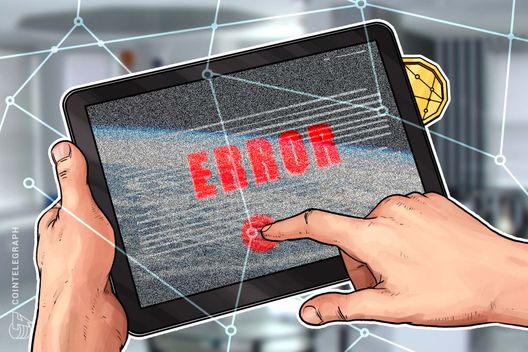
2018-8-14 16:09 |
A collaborative effort between IBM and Maersk to implement blockchain solutions on shipping made headlines recently when it was announced that initial trials had been successful and early adopters could now join the program.
But while this is a step in the right direction, there are issues with blockchain technology that might make it difficult for total use.
It can be instructive to imagine blockchain as a relatively slow, expensive database with excellent protection against hacking and corruption. As a write-once, read many (WORM) system, past records cannot be altered and only added in front.
You can store any format of data you want on a blockchain, hypothetically, but there are severe practical limitations. You can’t store large chunks of data, so forget about Big Data or video media, and you probably don’t want data that is subject to frequent change.
DAG architecture could be Blockchain 3.0These limitations to blockchain make it liable to run slowly, and it is not entirely free, either. Blocks have to be mined within the framework of the system which, quite simply, takes valuable computational power additional to the transaction fees.
A DAG-based network has no blocks, and no mining for that matter, as instead, each transaction carries within it two layers; therein lies the data layer and the transaction layer. They are verified by each neighbor node, the one that came before and the one that follows, which means that a transaction broadcast completes in seconds, supposing there is an adequate number of network users.
So the real power of DAG architecture is that it can power a near infinitely scalable way of storing data across the computers or devices of millions of users, who are then rewarded with crypto tokens for the amount of storage space donated to the network.
Databases are said to be consistent if they can always be audited. Distributing the datasets thus to each node in the network, a private one accessed only by permissioned parties no less, would make this very straightforward.
The tree structure of a DAG means that its transaction sequences are already more or less segregated into their own series anyway—unlike Bitcoin, transactions don’t have to be seen by the entire network.
But is a DAG-based solution far off?There is demand for a technology which will carry supply chain management into the future as it grows ever more complex. What an effective solution needs to bring is the ability to continuously and quickly input new data, reduce incremental costs along the chain, and improve overall logistical productivity.
Several startups are currently developing DAG networks, though most are choosing to remain reliant on Ethereum and Bitcoin blockchains, despite the fact that a real solution to scalability issues might be a long way off.
This is where platforms such as CyberVein and IOTA come in, with DAG architecture designed to drastically restructure how data is managed. A supply chain, with its numerous confirmation and data points from the coffee farmer to the supermarket shelf, could have an entirely transparent series of ledgers denoting what had changed hands, where, and when this was.
In a nutshell, intermediaries become redundant, and the information disparity between elements of the supply chain disappears overnight. Everyone involved in the process has a track of the balance sheet and the price is clear to all parties, as are costs of transportation. There could be massive savings with intermediaries all but gone from the equation.
CyberVein takes this one step further; they plan to implement Hadoop’s tool MapReduce to turn large datasets into smaller parts for easier categorization and analysis. This could be an intriguing way of handling supply chain data for corporate giants like Amazon with vast networks that span the globe.
The report from Transparency Market Research was right to highlight what is set to become an integral part of the global supply chain industry. At the moment though, most of the focus is on possibilities through blockchain technology.
But, with scalability issues not likely to be resolved any time soon, it is possible that more startups will start developing DAG-based solutions instead. If the technology proves to be solid, then it could be the answer global logistics has been looking for.
DAG Stretches Practical Limits of Future $30 Billion Supply Chain Software Industry was originally found on [blokt] - Blockchain, Bitcoin & Cryptocurrency News.
origin »Bitcoin price in Telegram @btc_price_every_hour
High Performance Blockchain (HPB) на Currencies.ru
|
|


















